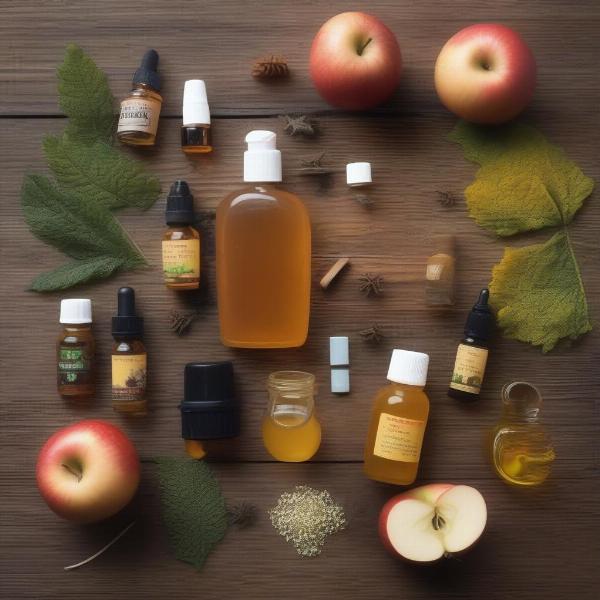Keeping your dog safe from mosquitoes is a top priority, especially during warmer months. Finding a mosquito yard spray safe for dogs can be tricky, as many commercial products contain chemicals that can harm your pet. This article will guide you through choosing and using safe and effective mosquito control methods for your yard, ensuring your canine companion can enjoy the outdoors without the risk of mosquito bites and the diseases they carry.
Understanding the Risks of Mosquitoes to Dogs
Mosquitoes are more than just a nuisance; they can transmit serious diseases to dogs, including heartworm, West Nile virus, and eastern equine encephalitis. Heartworm disease is particularly dangerous, as it can be fatal if left untreated. Protecting your dog from these diseases begins with effective mosquito control in your yard.
Choosing a Safe Mosquito Yard Spray for Dogs
When selecting a mosquito yard spray, always prioritize products specifically labeled as safe for pets. Look for sprays containing natural ingredients like citronella, lemongrass, or geranium oil. These natural repellents are effective at deterring mosquitoes without posing a threat to your dog’s health. Avoid products containing DEET or permethrin, as these chemicals can be toxic to dogs. Carefully read the product label and follow the instructions precisely.
Natural Mosquito Control Methods for Your Yard
In addition to mosquito yard sprays, there are several natural ways to reduce mosquito populations in your yard. Eliminating standing water is crucial, as mosquitoes breed in stagnant water sources. Regularly empty birdbaths, flower pot saucers, and any other containers that collect water. Keep your grass trimmed short and remove any debris or leaf piles where mosquitoes can hide. Consider introducing mosquito-eating fish, such as gambusia, to ponds or water features. These fish are a natural and effective way to control mosquito larvae. You can also plant mosquito-repelling plants like lavender, marigolds, and rosemary around your yard.
Protecting Your Dog with Other Preventative Measures
While a safe mosquito yard spray is an essential part of your mosquito control strategy, it’s important to combine it with other preventative measures. Using a veterinarian-approved heartworm preventative medication is crucial for protecting your dog from this potentially fatal disease. insect repellent for dogs can also be applied directly to your dog, providing an extra layer of protection. Consider using a mosquito repellent collar for dogs for added protection during peak mosquito season. mosquito repellent collar for dogs During peak mosquito hours, typically dawn and dusk, limit your dog’s time outdoors.
Homemade Mosquito Spray for Dogs: A Natural Alternative
For those who prefer a DIY approach, a homemade mosquito spray for dogs can be a safe and effective option. homemade mosquito spray for dogs typically involve combining natural ingredients like apple cider vinegar, witch hazel, and essential oils like citronella or lemongrass. Always research safe essential oil dilutions for dogs before creating a homemade spray.  Ingredients for a homemade mosquito spray
Ingredients for a homemade mosquito spray
Conclusion
Protecting your dog from mosquitoes requires a multi-faceted approach. By choosing a mosquito yard spray safe for dogs, eliminating standing water, utilizing natural repellents, and employing other preventative measures, you can create a safe and enjoyable outdoor environment for your furry friend. Remember to always consult with your veterinarian for personalized advice on mosquito control and heartworm prevention.
FAQ
- What are the signs of heartworm disease in dogs? Early signs can be subtle, including coughing, fatigue, and reduced appetite. In later stages, more severe symptoms like difficulty breathing and heart failure can occur.
- How often should I apply mosquito yard spray? Follow the product label instructions for frequency of application. Generally, reapplication is necessary after rain or watering.
- Can I use human mosquito repellent on my dog? No, never use human mosquito repellent on your dog. Many human repellents contain DEET, which is toxic to dogs.
- Are all natural mosquito repellents safe for dogs? While many natural repellents are safe, it’s important to research specific essential oils and dilutions before applying them to your dog.
- What should I do if I think my dog has been bitten by a mosquito? Monitor your dog for any unusual symptoms and consult with your veterinarian if you have any concerns.
- How can I prevent mosquitoes from breeding in my yard? Eliminate standing water, keep your grass trimmed, and consider introducing mosquito-eating fish to ponds or water features.
- Are there any dog breeds more susceptible to mosquito bites? While any dog can be bitten by mosquitoes, dogs with thinner coats or those that spend more time outdoors may be at higher risk.
About ILM Dog
ILM Dog is your trusted source for expert advice on dog care, offering practical guidance on everything from breed selection and health care to training, nutrition, and grooming. We are committed to providing dog owners worldwide with reliable information and resources to help them raise happy and healthy canine companions. For expert advice on dog products and accessories, contact us at [email protected] or call +44 20-3965-8624. worm and flea treatment for dogs and large outdoor dog gate are some of the topics we cover.